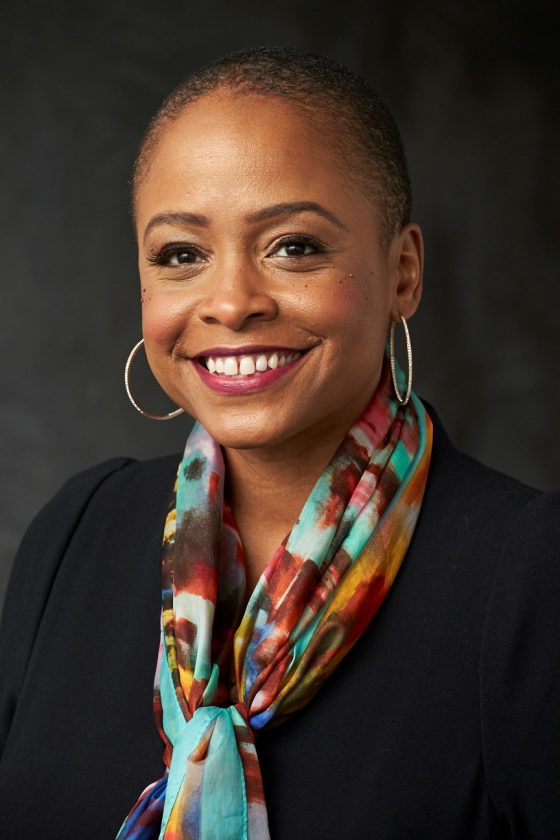‘Conversation’ on cannabis plots next steps

FILE — This Aug. 22, 2019, file photo shows medical marijuana plants being grown before flowering during a media tour of the Curaleaf medical cannabis cultivation and processing facility in Ravena, N.Y. New Yorkers can now possess and use up to 3 ounces of cannabis under a legalization bill signed Wednesday, March 31, 2021, by Gov. Andrew Cuomo, while sales of recreational-use marijuana won't become legal for an estimated 18 months until the state draws up regulations.(AP Photo/Hans Pennink, File)
The state’s new Office of Cannabis Management held a wide-ranging “Cannabis Conversation” online Thursday evening.
Tremaine Wright of Brooklyn, the chair of the state’s cannabis control board, explained the Marijuana Regulation and Taxation Act approved in 2021 and answered questions emailed by the public. She made clear the state has a way to go before it is ready to offer cannabis sales licenses.
The act puts “equity, inclusion and justice at the forefront of the new cannabis industry we are building,” she stated near the start of her presentation. Wright explained that she would be using the word “cannabis” instead of referring to it as marijuana, as that word “has a long history of being used for racial profiling.”
Wright said the control board she chairs oversees the Office of Cannabis Management. “With legalization, New York shifted from a policy centered on law enforcement and persecution, to a policy that centered on public health,” she said. “We are committed to mitigating the impact of previous laws.”
The state will collect revenues from a tax on the THC content of the cannabis. THC is the compound responsible for getting the user “high.” The bigger the THC content, the larger the tax will be.

Tremaine Wright
Wright said from the revenue collected, 40% will go toward education, 40% toward a community reinvestment grant fund to benefit “communities most hurt by disproportionate policing when cannabis was illegal,” and 20% toward drug treatment programs.
She went on to explain the “opt-out” rule, where municipalities could have opted out of allowing cannabis dispensaries and/or smoking lounges, if they did so by Dec. 31.
- Assemblyman Andy Goodell, R-Jamestown, explains his vote as members of the New York Assembly pass legislation to legalize adult-use cannabis during a Legislative Session in the Assembly Chamber at the New York state Capitol, Tuesday, March 30, 2021, in Albany, N.Y. (AP Photo/Hans Pennink)
- Tremaine Wright
- FILE — This Aug. 22, 2019, file photo shows medical marijuana plants being grown before flowering during a media tour of the Curaleaf medical cannabis cultivation and processing facility in Ravena, N.Y. New Yorkers can now possess and use up to 3 ounces of cannabis under a legalization bill signed Wednesday, March 31, 2021, by Gov. Andrew Cuomo, while sales of recreational-use marijuana won’t become legal for an estimated 18 months until the state draws up regulations.(AP Photo/Hans Pennink, File)
When the state does issue cannabis sales licenses, 50% will go to “social and economic equity applicants” such as minorities, women, distressed farmers and disabled veterans, she said.
There will have to be warning labels on cannabis packages. Billboard ads will be prohibited and all advertising will have to be in places where the audience is aged 21 or over. Advertising cannabis within 500 feet of schools, day care centers and parks is specifically prohibited as well.

Assemblyman Andy Goodell, R-Jamestown, explains his vote as members of the New York Assembly pass legislation to legalize adult-use cannabis during a Legislative Session in the Assembly Chamber at the New York state Capitol, Tuesday, March 30, 2021, in Albany, N.Y. (AP Photo/Hans Pennink)
Wright stressed traffic safety issues as well. She pointed out it is illegal to use cannabis while driving and illegal to drive while impaired by it. She promised the state would increase its training of drug recognition efforts to go after impaired drivers.
Wright also addressed the issue of “pop-up” dispensaries, seen locally on the Seneca Nation of Indians. Some of them “gift” cannabis to a customer, in exchange for money, and “this is illegal,” she said. There are currently no legal sales of non-medical cannabis in the state and the product at the pop-ups is not quality-tested or assured, she said.
However, during the question-and-answer portion, she acknowledged, “We do not have jurisdiction under native lands. … They are able to create their own cannabis laws.”
Wright said the state must take several steps before it is ready to license marijuana sellers. For one, “decisions on application requirements have not been made.” She repeatedly invited people to go to the state website, cannabis.ny.gov, for a series of upcoming updates on rules for cannabis sales.
Some nuggets of information harvested from the question-and-answer session included:
¯ The state will now be waiving registration fees for medical cannabis.
¯ It is also now allowing medical practitioners to certify patients for any condition the doctors think can be treated with cannabis.
¯ “Police can no longer make arrests based solely on the smell of marijuana,” Wright said.
¯ The state is automatically expunging records of people convicted for cannabis crimes when the substance was illegal. People do not have to take action on their own but can check with the state to make sure their records have been cleared.
¯ No caps are determined yet for the number of licenses allowed. “We’re looking at demand, we’re looking at desire, we’re looking at need,” Wright said.
The “Cannabis Conversation” Thursday was the first in a series the Office of Cannabis Management will be holding across the regions of the state. The Thursday event was intended for Western New York.







